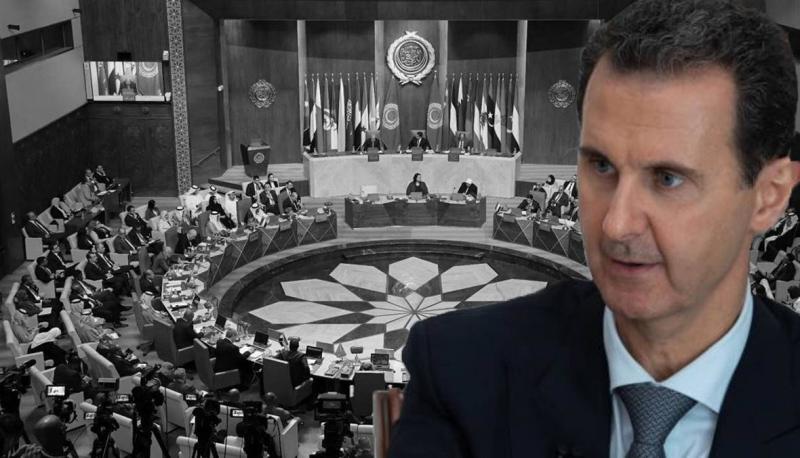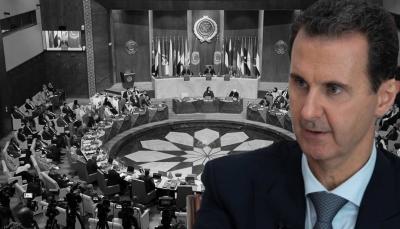As Jordan continues its "war" against smuggling operations of drugs and weapons along its northern border with Syria, Saudi Arabia is making positive strides in its relationship with the Syrian government, raising questions regarding the "Arab project" and the potential effects of bilateral relations on the collective decisions made under the "initiative."
The issue of drug trafficking toward Jordan is one of the three key concerns identified by Arab states, primarily Saudi Arabia, Jordan, and Egypt, which the regime must address and provide guarantees for in exchange for its rehabilitation both Arabically and internationally, within a framework known as the "step-by-step policy." However, despite Syria restoring its seat in the Arab League and subsequent meetings that opened doors for Syrian officials, the Syrian regime has yet to demonstrate any positive gestures on the ground, whether concerning drugs, the return of refugees, or the progression of the constitutional writing process leading to a political solution reflecting UN Security Council Resolution 2254.
After Syria reopened its embassy in Riyadh in December of last year and quickly appointed Assistant Foreign Minister Ayman Sussan as ambassador, he announced on Wednesday that he had regained control over the Hajj file, which had previously been handed over to a committee affiliated with the Syrian opposition since 2012. These three Saudi steps—reopening the embassy, appointing an ambassador, and transferring management of the file to the Syrian Ministry of Religious Endowments—occurred as bilateral actions and were not part of what the "initiative" stipulated, which was designed with a collective spirit, according to observers who spoke to Al-Hurra.
**Has the "Initiative" Ended?**
The last meeting of the Arab contact committee, formed after Syria's return to the Arab League, took place in August 2023. Its outputs outlined several points limited to the three main issues (drugs, refugees, political solution, and the constitutional committee's path). Since then, there has been no new development regarding the "Arab initiative" with the Syrian regime, contrasting with the announcements made bilaterally, especially between Riyadh and Damascus.
Former Jordanian Minister of Information, Samih Al-Maaitah, believes that the "Arab project," also known as the "initiative" based on "step-by-step" dealings, has ended, without this affecting the trajectory of bilateral relations. He notes that the bilateral interactions between Arab capitals and Damascus existed even before the "step-by-step" framework, as evidenced by previous relations between Amman and Damascus and between Damascus and Abu Dhabi.
Al-Maaitah states: "The initiative was a project for Syria's international rehabilitation by means of finding a political solution to the crisis and opening Syria’s doors to the international community." The international community had several requirements, including the missing persons file, human rights issues, elections, and the constitution, none of which the Syrian regime fulfilled, resulting in the closure of the "Arab project," according to the former minister.
Syrian researcher at the "Jusoor for Studies," Abdul Wahab Aasi, disagrees with the notion that the "step-by-step" initiative aimed at internationally rehabilitating the regime and argues that it was separate from each country's bilateral relationship. Aasi clarifies to Al-Hurra that "the course of the initiative did not seek to prioritize bilateral relations over Arab ones, while the Syrian regime wants to limit its responses to this approach." He points out that "the regime’s behavior effectively indicates that it prioritizes bilateral cooperation with Arab states over collective engagement."
The researcher adds that this is connected to the regime's aim to ensure it does not incur responsibilities and obligations that would ultimately undermine Arab normalization efforts and its attempts to break both Arab and international isolation.
**An "Incomplete Initiative"**
There are still no solutions for addressing the drug smuggling issue that Jordan faces. Conversely, the situation has worsened, prompting the Jordanian army to execute three airstrikes in the past two weeks, targeting "storage depots for Iranian agents," according to intelligence sources speaking to Reuters. Likewise, the refugee situation remains stagnant, with no developments for those in Jordan or Lebanon. Meanwhile, the rounds of the Syrian constitutional committee are still on hold without any new updates, despite the recent meeting of the Arab contact committee, which designated Oman for the ninth round.
Former Jordanian minister Al-Maaitah sees that "the bilateral project exists now, but the Arab initiative, which is crucial, has stopped and is no longer present." The Arab project aimed to "reintegrate Syria into the international community and reach a political solution to the Syrian crisis, as well as address the drug problem." Nonetheless, Al-Maaitah adds, "There is no longer any Arab movement to rehabilitate Syria... the Syrians squandered this opportunity because they either do not want to or cannot resolve these obligations, particularly the issue of refugees and the plan to return a thousand refugees, then another thousand from Jordan."
Researcher Aasi believes that "Jordan does not want to bear the responsibility for the regime's non-compliance alone." He suggests that by showing its relations with the regime are based on bilateral cooperation, it aims to pressure Saudi Arabia and other countries. Additionally, this sends a message that "it does not accept being solely accountable for the regime's non-compliance and is prepared to address issues pertaining to its national security through continuous communication with Damascus."
It appears that Amman is moving in this direction, according to Aasi, highlighting that "airstrikes and military operations in Syria, as well as clashes, are carried out with prior notification to Damascus!"
**A Broader Approach**
Jordan is considered the most affected party by the deadlock of the Arab initiative regarding Syria. This is linked to continuous and increasingly aggressive smuggling operations since mid-December, alongside the refugee problem, especially since Amman was counting on reaching a mechanism to ensure the gradual return of some refugees. Al-Maaitah emphasizes that his country is suffering from "stagnation and the failure to find solutions." He adds, "The decision is not in Jordan's hands. It is trying and striving, but there are factors and circumstances related to the Syrian crisis that give it an international character."
Amman had hoped for the success of the Arab initiative, but "the Syrian state procrastinated, and while it spoke positively, it did not deliver anything tangible." The Gaza conflict has now taken precedence on the agendas of countries, shifting Syria down the list of priorities—a factor that has provided a sense of relief to the Syrian regime, according to Al-Maaitah.




